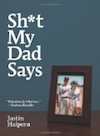media
July 22, 2011 12:29:13.606
TechDirt notes that the AP has finally figured out that - make sure you're sitting now - links are useful things. It'll be another decade or three before they learn how to use them though...
Well, look at that. The Associated Press has reached 1993 or so, and realized that they can (and probably should) link to other sites when reporting on a story that those other sites reported first. Of course, they're still learning some of HTML's features, such as the idea that you can link to actual words in a story. Instead, they'll be putting the links (via Bitly) in parentheses right after they cite the source.
Technorati Tags:
copyright
posted by James Robertson
media
February 3, 2011 9:41:07.000
Who knew? The media's theory about making content available during brief "windows" drives up piracy rates outside of those windows. TechDirt explains:
One of the main reasons why people access unauthorized copies is because they can't get legitimate copies. The movie industry is so infatuated with "windows" that it doesn't seem to realize that restricting how people can access their movies only drives more and more people to unauthorized means.
That, and the fact that the media outfits are consumed with the idea of selling you N copies of the same content, where N equals the number of devices you own. Here's a hot tip: if I have the DVD, I shouldn't need to buy a digital copy to put on my iPad. So long as I bought the DVD, I should be able to make use of that content on a personal basis any way I want. Sure, if I start selling copies, or even giving them away, that's a problem. If I want to watch on another device? Not so much.
Technorati Tags:
movies, video, audio
posted by James Robertson
media
February 2, 2011 17:49:45.821
Jeff Jarvis would like to see math that adds up for News Corp. on "The Daily" - reading his post makes it look iffy to me, in the same way that the production of "Spiderman" on Broadway is iffy. Add in Apple's in app subscription rules, and things really get interesting.
Technorati Tags:
iPad, newspaper
posted by James Robertson
media
January 24, 2011 13:30:00.000
The New York Times' new paywall just doesn't make much sense. Not the overall concept, just the specific implementation. Here's what they supposedly plan to do:
The person familiar with the matter said the Times has considered charging around $20 a month for the digital bundle and less than half that for the Web-only offering
But there's a problem with that approach, as Felix Salmon notes:
This strikes me as peculiar. The idea seems to be that if you want to use the NYT iPad app at all, that’ll cost you a hefty $240 per year, over and above the cost of the iPad itself. But if you want to read the nytimes.com website on your iPad, that’s probably free — and even if you’re in the minority of power users, it’ll still be less than half the price of the app. Essentially, the NYT is doing everything it can to drive its iPad-owning readers away from the app and towards the built-in browser.
Exactly - what would possess me to try their iPad app under this deal? Why not just stick with the website? If they want to attract me to a pay model (where the website is free until I cross a threshold), then they need to make it more attractive, not less.
This looks like the result of an internal political battle that the iPad backers at the Times lost. They get their app, but in a "guaranteed to lose" fashion. The website side will then point and laugh, and not lose any of their budget.
posted by James Robertson
media
September 22, 2010 10:57:06.879
Jeff Jarvis only gives us part of the story on the "Times vs. WSJ" thing:
OK, but that’s half the story. It’s more like 10 percent of the story. For now shift to the future, the web, and comScore tells us that in July, The Times reached 43.6 million people online vs. the Journal’s 16.1 million. By the time you add in pass-around readers for the paper and de-dupe the same readers for print and online, those numbers might change, but the moral to the story doesn’t. The New York Times has roughly two and a half times more readers than the Journal. That translates to two and a half times more influence, two and a half times more relationships, a two-and-a-half-time bigger brand.
That's true, but - what are the revenue numbers? We know that the Times has been bleeding money and cutting staff; the online WSJ seems to be doing pretty well. I'm with jeff on the notion that print news is dead, and I like free stuff as well as the next guy - but my wife pays for an online subscription to the WSJ, as do a few other friends.
Those eyeballs might be nice for the NYT, but they don't end up paying the bills.
Technorati Tags:
news
posted by James Robertson
media
July 21, 2010 7:46:48.362
Via Jeff Jarvis comes a link to Google's response to the FTC "discussion draft" on the troubles newspapers are having:
The large profit margins newspapers enjoyed in the past were built on an artificial scarcity: Limited choice for advertisers as well as readers. With the Internet, that scarcity has been taken away and replaced by abundance. No policy proposal will be able to restore newspaper revenues to what they were before the emergence of online news. It is not a question of analog dollars versus digital dimes, but rather a realistic assessment of how to make money in a world of abundant competitors and consumer choice.
That's exactly right. You can't go back in time and restore the scarcity of news, anymore than you can go back in time and "rescue" various software businesses from open source. When the world shifts because of a new technology (and how it gets used), old business models often get chewed up. That's just the way it is.
How many people are mourning the loss of all the businesses that used to support horse transit back at the turn of the 20th century? I'm sure there was plenty of hand wringing about that as well, but the world didn't stop spinning.
Technorati Tags:
news, business model
posted by James Robertson
media
July 20, 2010 14:59:07.874
While I understand the thinking behind the new paywall that Murdoch's UK newspapers are using on their websites, I think it's a doomed plan. First, the bad news, from GigaOm:
The paywall at the Times of London’s web site has led to a drop of at least 65 percent in the newspaper’s online readership, according to early estimates.
Supposedly, they aren't worried about this - what they want is to keep their print subscribers paying for the print edition, by not letting them see the website unless they pay. There are two problems with that theory though:
- It's a no growth play. New prospects can't see anything, so they are unlikely to buy in. Younger people are buying less print news period, so the entire market for this plan is shrinking.
- Even for the existing buyers, it assumes that they can't find the news elsewhere. That's clearly not the case.
Add it all up, and it seems to me that this plan puts a clock on the lifespan of any business that uses it. No growth, and constant attrition from your existing customer base. Not a good way to go, IMHO...
Technorati Tags:
news, newspapers
posted by James Robertson
media
June 2, 2010 9:11:51.337
No, Nick Carr can't get off this easy:
Warning: the first idiot who writes a comment on this post pointing out the "irony" of its links will be tracked down, tortured, and shot.
In discussing reaction to his piece on links and attention span, he pretty much had to link to other people - what's a discussion otherwise?
The part of this I find amusing is this: Carr seems to think that the web will destroy long form, immersive reading. Excuse me? When was there a huge amount of that going on anyway? Long form reading is (and always has been) engaged in by a fairly small number of people. This supposed golden age of media that Carr seems to yearn for never existed. Most newspapers prior to the mid 20th century were openly biased scandal sheets; there was a brief confluence of technology that allowed a few people (like Carr, it seems) to believe that journalists were some new class of objective uber-men, able to convey the news to us poor heathens in a pure form.
What hasn't occurred to Carr is this: stuff on the net is one form of writing, consumed in a particular way. Books are a different form of writing, consumed in another. Some people prefer one over the other, just as there were plenty of people back in the 80's who preferred "People" to "The Wall Street Journal".
There's no "winner" or "loser" here; there's just a new form of writing and reading. Maybe Carr can't consume books like he used to; that sounds like a personal problem. As you can see here, I haven't run across that problem, and I'm pretty heavily immersed in this whole internet thing.
Overall, I think Mathew Ingram has Carr pegged pretty well.
Technorati Tags:
stupidity, reading
posted by James Robertson
media
June 1, 2010 5:55:38.000
It's useful to read Nick Carr from a "there's a set of ideas to avoid" standpoint. Take his latest on the humble link:
Sometimes, they're big distractions - we click on a link, then another, then another, and pretty soon we've forgotten what we'd started out to do or to read. Other times, they're tiny distractions, little textual gnats buzzing around your head. Even if you don't click on a link, your eyes notice it, and your frontal cortex has to fire up a bunch of neurons to decide whether to click or not.
Now, imagine Carr a few thousand years ago, when the written word appeared. He would have fulminated against it as the "death of storytelling". To an extent, he would even have been correct - no one develops memorization skills as our ancestors did anymore. Then again, we don't have to - Wikipedia (et. al.) are never more than a link away.
Carr has become a force in favor of inertia. He's comfortable with a certain level of technology, and pretty much wants things to stay in his comfort zone. The trouble is, he sounds just reasonable enough to get a few shallow thinkers to follow along.
Technorati Tags:
link
posted by James Robertson
media
May 29, 2010 14:52:27.359
Jeff Jarvis doesn't like what he sees in an FTC report on how to "save journalism". Like Jarvis, I wasn't aware that journalism needed saving; I am aware that there are (still influential) legacy players that want the field cleared of all those pesky new media types.
And people wonder why I'm skeptical about government. With "help" like what's being talked about here, who needs obstacles?
Technorati Tags:
news media, journalism, news
posted by James Robertson




